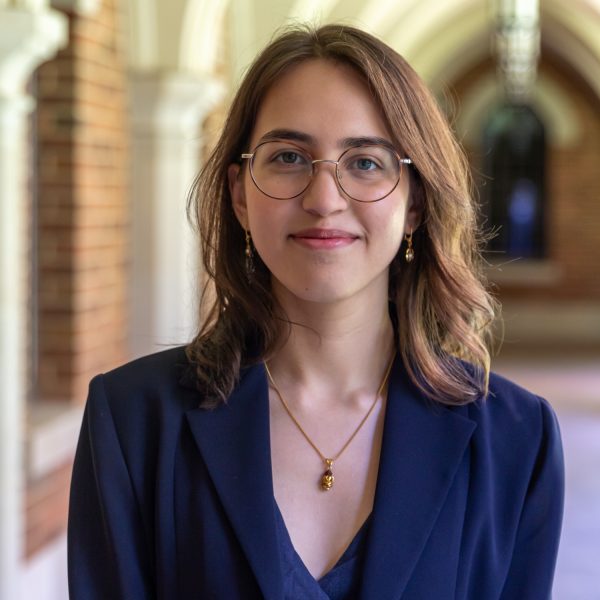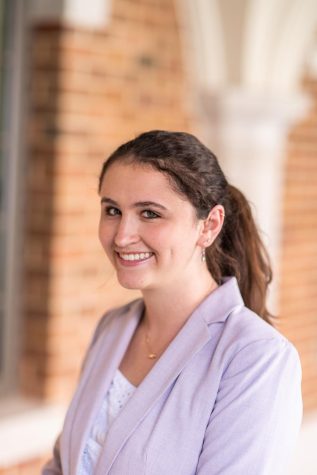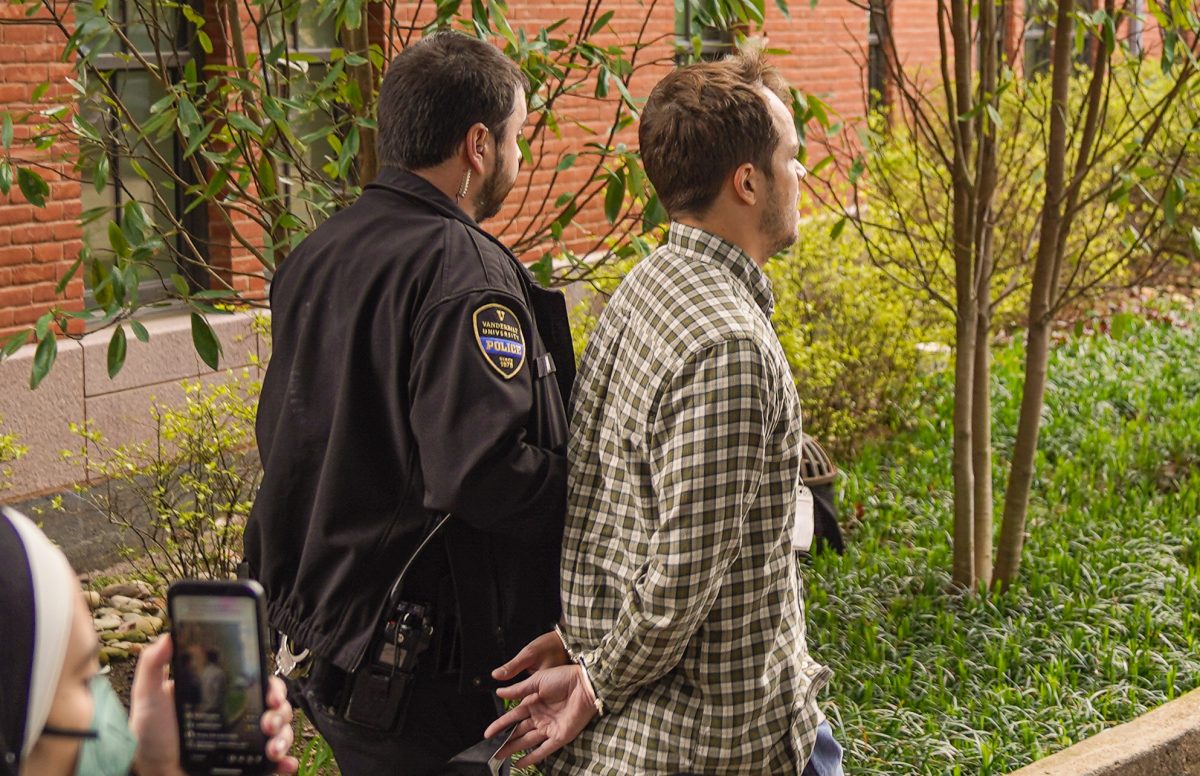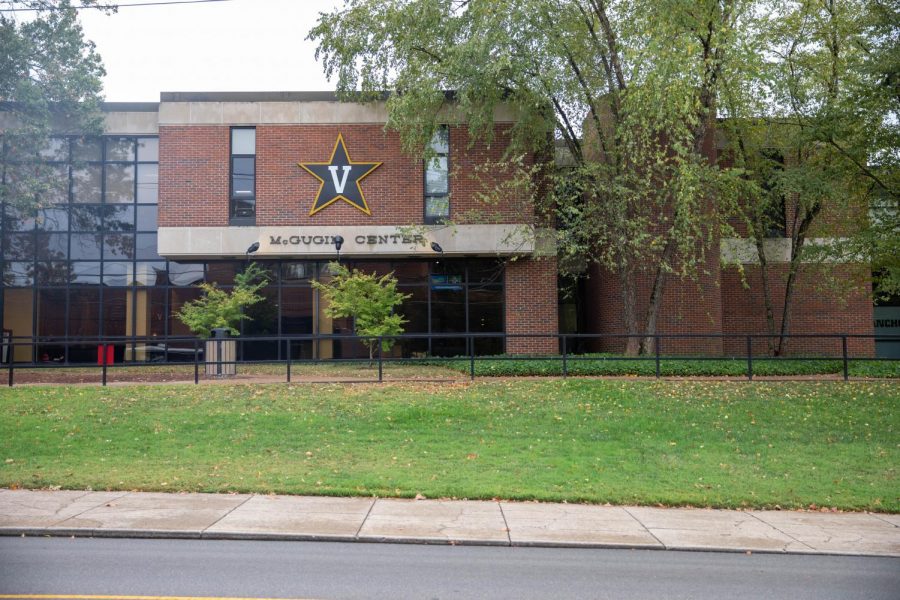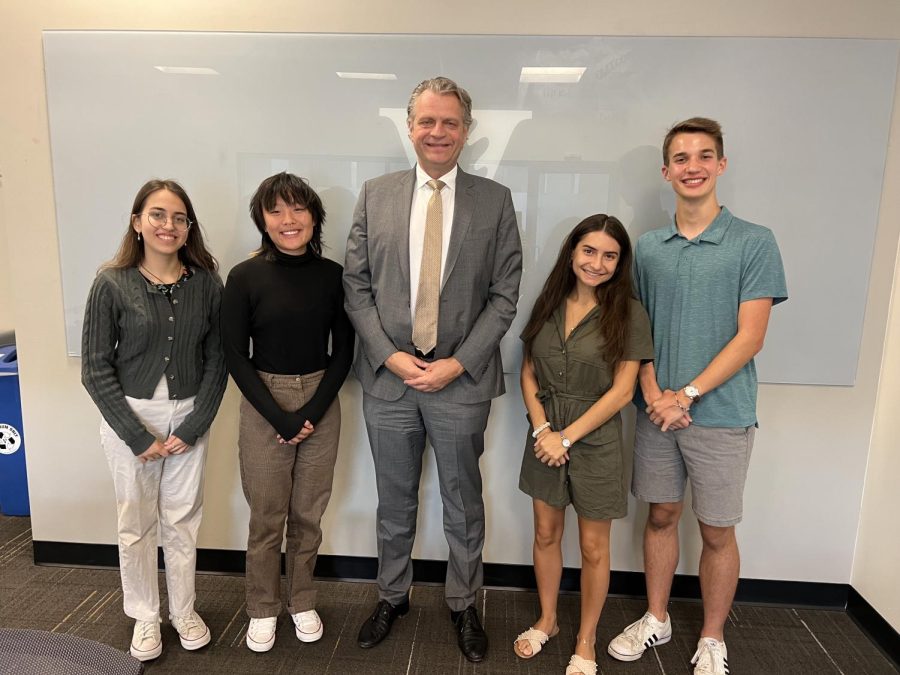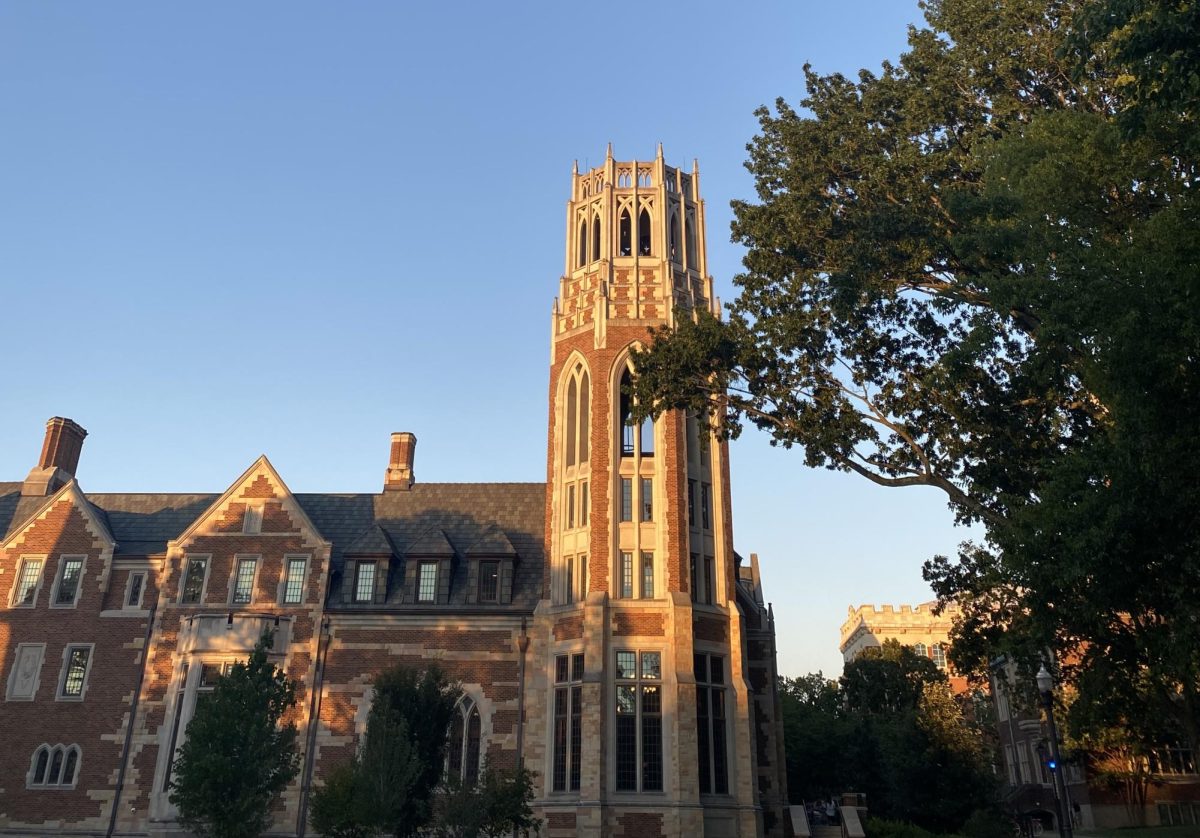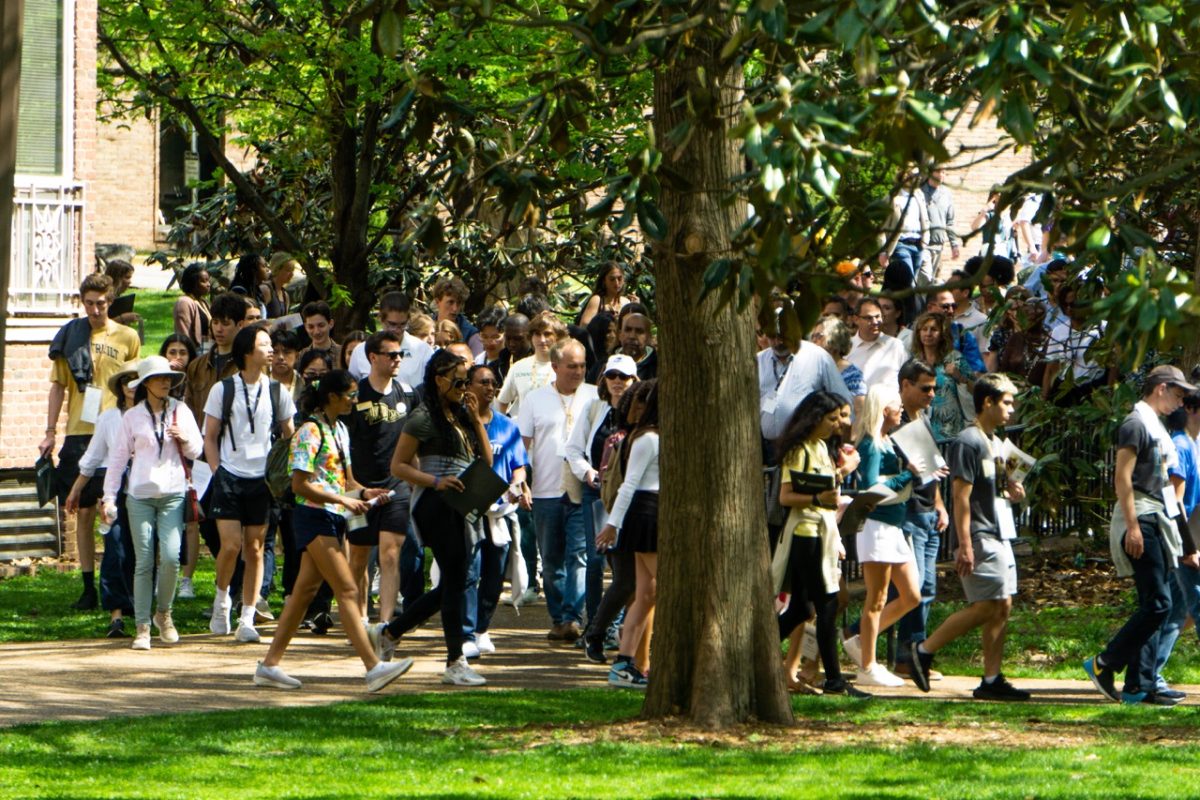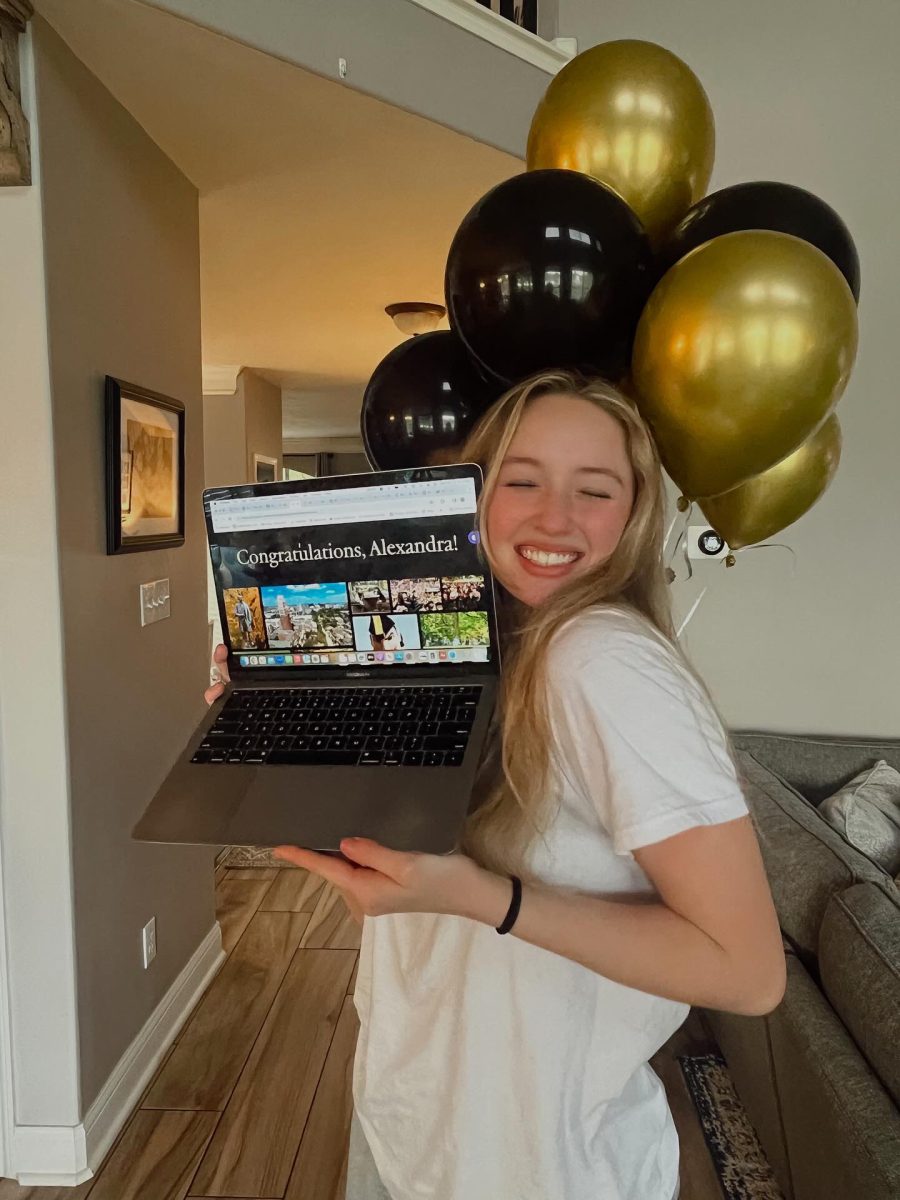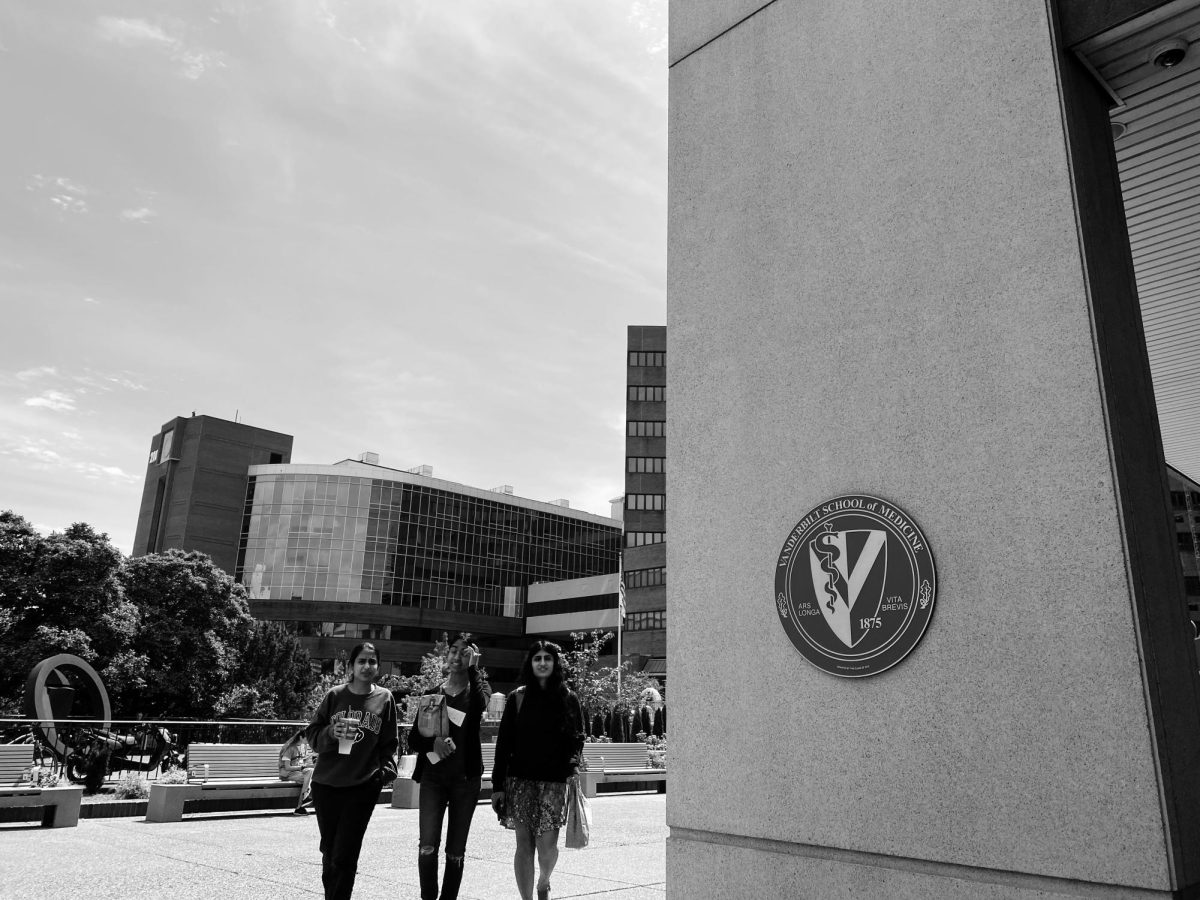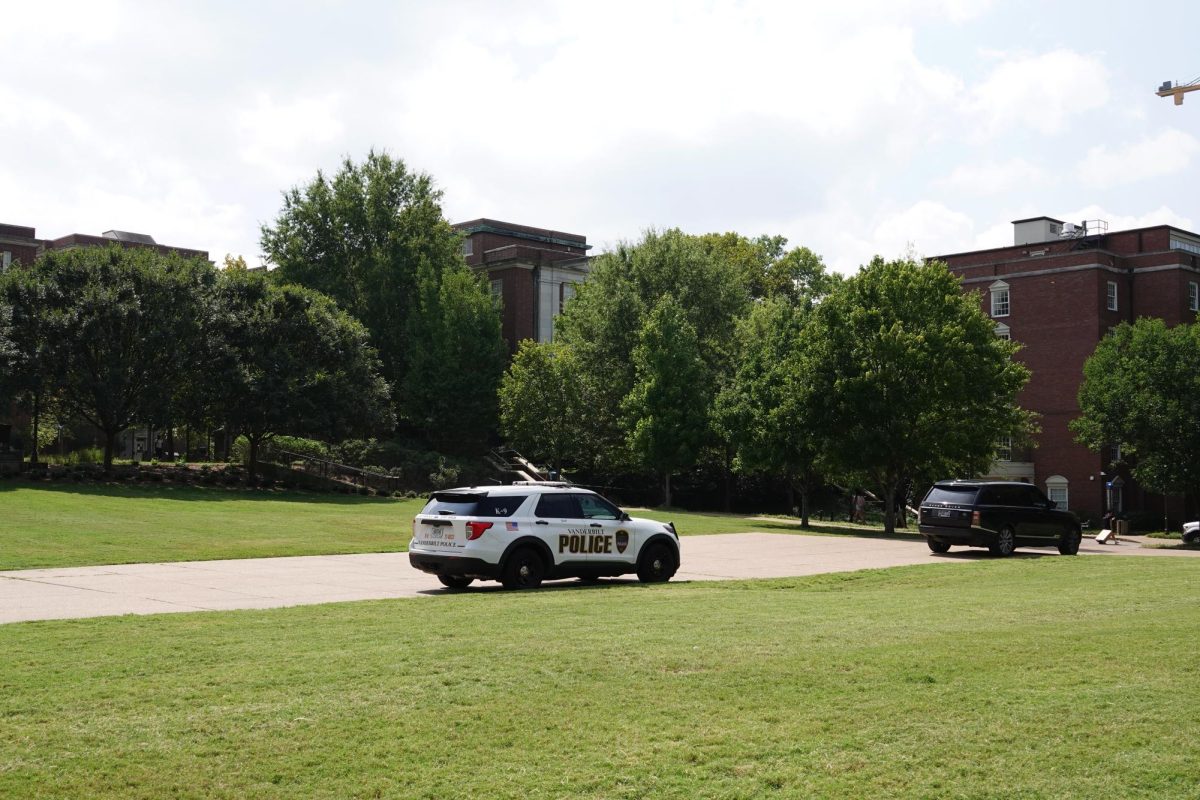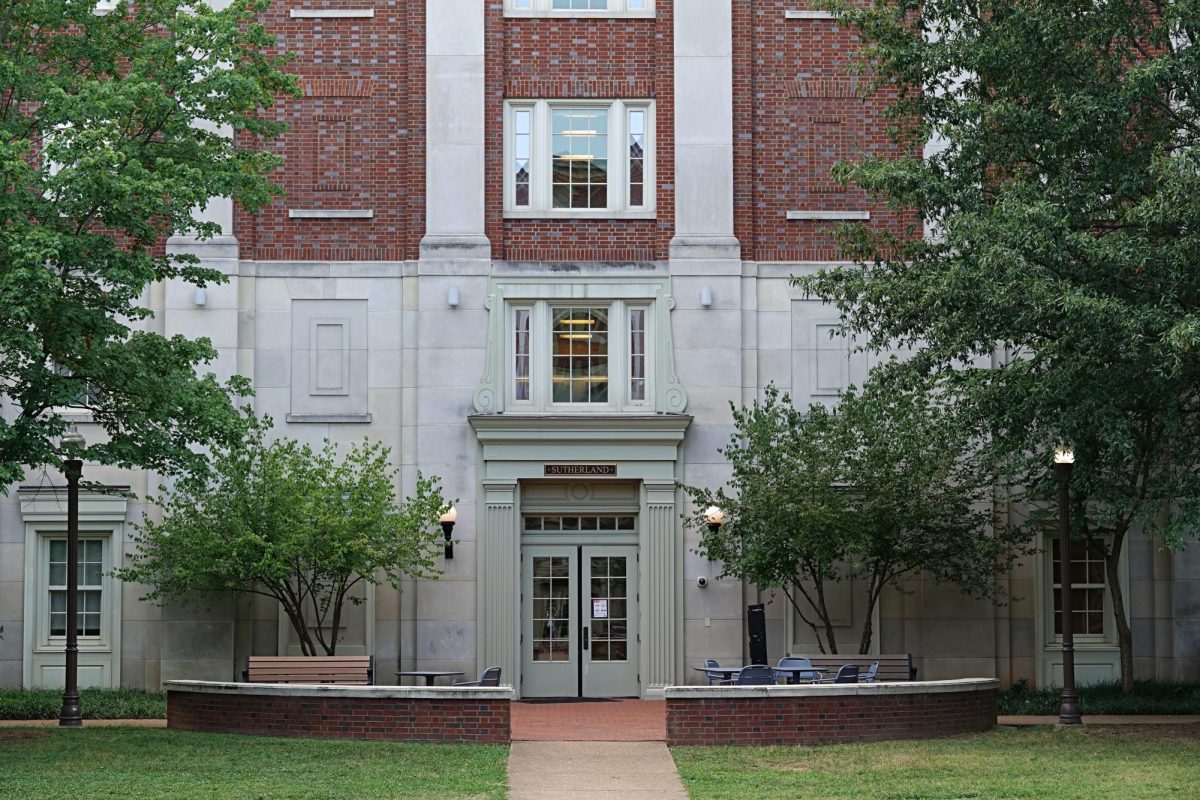The Vanderbilt Hustler: Could you both tell us about your official roles on campus and also what you do on a day-to-day basis?
Raver: I serve as the Chief Academic Officer (CAO) of the university. Just as with a corporation, which has a CEO and a CFO, our CEO is our chancellor, and our CFO is Brett Sweet. Universities are weird because they have a CAO, and that’s my job. The deans go up to me; I receive all the things they oversee—all the department chairs and all the programs. Essentially, I’m responsible for the reputation, academic quality and all of the things that we do in terms of degree granting.
The second role is that I oversee all graduate and undergraduate admissions. That is also the specialty of our Vice Provost of Enrollment Doug Christiansen. All of the undergraduate academic affairs roll up to Vanessa Beasley. All the graduate academic affairs roll up to André Christie-Mizell, the dean of the graduate school.
The third really big piece of my job, in addition to students’ well-being and academic experience, is research affairs—everything from laser safety to how there are hoods in chemistry labs that keep faculty, students and staff safe. Essentially, everything pertaining to our research reputation goes up to our Vice Provost for Research Affairs Padma Raghavan. I’m also responsible for all of the lifeblood of the university, in terms of teaching and research to solve faculty hiring, faculty retention, faculty promotion and all things pertaining to keeping the university productive, excited and engaged.
It’s really intense because it’s such a diverse range of activities and responsibilities. I try to spend about 50 to 60% of my time making sure that everything is rolling forward in an organized and structured way toward improvement in Vanderbilt’s reputation. That means recruiting really phenomenal, highest-caliber faculty, meeting with deans to figure out how they’re getting on with that faculty search and meeting with those faculty candidates. It involves visiting research labs, which is so fun because I get to see where undergraduates are getting involved in policy research or in climate research or in biomedical research or robotics research. That includes going to performances at Blair or going over to the art gallery to see the seniors’ exhibits. About 40% of my time is spent on strategies for the future— where Vanderbilt is headed. Today, for example, we have two different teams of deans visiting from outside [Vanderbilt] to give us some feedback.
Black: I’m the Vice Provost for Student Affairs, so you can think about the Dean of Students role as helping to foster academic and social networks that students have on campus, advocating for students and the student experience by collaborating with all the different areas that we have around campus—academics, dining, public safety—and then trying to work in conjunction with all those campus partners to create a safe, welcoming and inclusive environment for our students.
We’re really focused on care, connection, community and helping students navigate their experience. There are team meetings with all of our different departments within the Office of the Dean of Students to help them move forward with programs, events and initiatives. I’m also responsible for meeting with students, going to student events, talking with parents or other campus partners about all issues impacting students, dealing with any type of crisis situation that may arise and working with the right teams to address that and communicate about that.
Raver: My other title is Vice Chancellor, and as Vice Chancellor of Academic Affairs, I partner with other vice chancellors, such as Eric Kopstain, vice chancellor of operations, for everything with dining and campus safety. I partner with Candice Lee a lot because students who are student-athletes are both honors students and varsity athletes; they embody so many of the values that I have in terms of leadership and dedication to being really excellent at something. In terms of partnering and working collaboratively with a team, it’s really important that, when we do something, we’re doing it in collaboration with each other.
Recently, the university unveiled its new visual identity which has received significant backlash from students, alumni and even faculty and professors. We would love to hear your thoughts on the logo and your input on the student body’s reaction.
Raver: I am trained as a quantitative social scientist, so I often think about the distribution of any outcome or response. I think that, often, the negative response to something is a lot easier to pick up and hear than the positive response. Before I get really active in answering your question, I would want to have some evidence or some data that helps me to understand how representative that word backlash [is] of the full range of responses. I’d love to know how much that response changes over time. Is this the kind of thing where people are initially shocked by something new and then come to accept it, or is it that shock and dislike persists over time?
I will say hearing about a negative response is not unsurprising because I think novelty is really challenging—change is really challenging. We take insignias and logos seriously, and we feel strong membership and connection to them. So when they change, that can shock people.
Black: I think it’s also not necessarily surprising that there would be a mix of reactions. I agree with what Provost Raver mentioned about people strongly identifying with certain things, whether that’s a visual or a slogan or motto. Over time, as you start to see how that may be implemented or deployed in different contexts, that may be something that changes people’s attitudes over time or as they become more used to it. You may initially see something in isolation and not like it, but then you may see it in another context and think that it really works in that context.
The university also recently updated their freedom of expression policy in the Student Handbook. What spurred that change, and what do you hope to gain from it?
Black: A lot of it is not necessarily a change as much as just being about what we’ve learned and experienced in practice and reflecting that in the new policy. This [need] became more evident during COVID-19 when students still wanted to engage in demonstrations and protests and, with all the protocols and restrictions, they really had to navigate ‘How can we do this in a way that is safe and abide by those restrictions?’ I think that helped illuminate that we can be more clear about a pathway for students to engage in planning these activities.
We were doing it informally behind the scenes, whether that was groups reaching out saying ‘We want to do this, but we want to make sure we do it safely, or we want to make sure that we do it in a way that nobody gets in trouble,’ or sometimes hearing about things and calling students to say ‘I hear that you are interested in doing this. Would you be willing to talk with us so we can figure out how to do this in a way that meets your goals, keeps everybody safe and doesn’t violate any of the policies?’ Some of that is just a clear articulation of the ability and the process to do that for students and also to offer that opportunity at the end to come back together and say ‘This worked. This didn’t. We didn’t feel like this was very effective.’
A lot of this policy is new in terms of being written down in that way, but it’s not necessarily new in terms of the practice. Oftentimes, my team’s role when we’re participating with students is to try to make sure everybody’s safe so that they’re not inadvertently blocking access to things. One of the examples was about crossing major road intersections, where we can work with public safety to make sure that there are clear pathways.
Raver: Some of it is a little bit about liability— if a student gets hurt, they can potentially sue the university, or it can have impacts for the organizers of the activity too. I think it just takes a little bit more conversation around looking at the policy together which, in the informal conversations with groups in the past, is what we’ve done as part of that process. There are some things in there that are requirements and some things that are guidelines.
There’s also the acknowledgment that there are some times where dissent has to occur spontaneously because that’s what happens. That’s not prohibited.
I think it’s a good, helpful clarification to look at what’s required versus what is more as a helpful thing, and I would definitely frame it not as oversight of these activities because we don’t actually intervene and tell people where to go or what to do, necessarily—less oversight and more facilitation of the activity.
We wanted to ask you about the recent admissions cycle since regular decisions were just released. What are your thoughts on this admission cycle, on test-optional policies and what you want to do with testing requirements moving forward?
Raver: Test optional is a huge broad conversation. I am really very deeply dedicated to equity and opportunity in admissions. The extent to which we can maximize students who have had fewer opportunities to be on college campuses or to practice for college interviews or to do all the things that benefit strengthen students’ preparedness, I’m really, really clearly supportive of that. I don’t think that we have yet enough evidence to say that we have clarity on what the right answer is.
That being said, we’re doing a great job of recruiting a really vibrant, really dynamic, really energetic and really talented entering class. Overall, I think our team of hundreds of people working in admissions is amazing.
What motivated the decision to defer early decision II (EDII) applicants in this year’s application cycle?
Raver: I think Vice Provost Christiansen could probably answer more accurately, but in my view, the spirit of that decision was really in recognizing that, in prior years, this was a missed opportunity. For students that were expressing that level of enthusiasm to be here, if we weren’t able to admit them at that round, we should nonetheless signal clearly that we still are really interested in taking a second look at your application.
Recently, the administrative process of submitting and assessing student complaints, whether it be about something on campus or other student groups, has received a lot of attention. Could you shed some light on the process for assessing student complaints and what the appropriate avenues for students to bring those to administration are?
Black: There can be different processes that apply depending on the nature of the complaint. Some of those may be academic in nature; they may implicate Title IX or student discrimination matters.
We always tell students that if you’re uncertain about where to go, you can always start at the Office of the Dean of Students. We can help guide you in terms of connecting with the right department or office to receive your concerns and then navigating those processes. We obviously want to help students get their concerns to the right place. It’s always fine to start with ‘I have a concern about this. I need help. Where should I go?’
Raver: I’ve worked with a large number of universities and been a student at several, and I will say this group of leaders in G.L. Black’s team and across the university is more responsive and takes [student concerns] more to heart than any other team I’ve ever seen.
What I’m hoping for, in a dream world, is [a] shout out of appreciation when we get it right. There was a student who came to our Staff Appreciation Day event and gave a really beautiful testimony about all the ways in which people have really supported her trajectory from the moment she came to campus through her senior year.
Black: I talk to students a lot about the idea of bringing forward concerns and complaints and working to get those resolved; we see a lot of great initiatives where we can partner with students to come up with solutions. With VSG this year, we ended up helping them move forward with the GAP fund and the menstrual products initiative. A lot of that was by both having those conversations where it’s like, ‘This is a concern, here’s some information about how students feel about this, then let’s talk about how we can resolve this.’ Those are also fun to do in partnership because the students have a vested interest, and the staff that’s working with them has a vested interest in the success of that initiative.
Raver: We also do a lot of what the chancellor calls ‘Kaizen,’ which is after an event or after a big initiative we [discuss] what worked well and what could be improved. It’s a debrief method and a chance to review because we always want to make it better; there’s always something that could be improved.
A guest editorial was published in The Hustler about a student’s Title IX experience earlier this year. This piece, as well as the six students who reported groping attacks/assaults in the same week, have both spurred a lot of discussion around sexual assault and around student safety more generally. Do you have a plan to improve student safety, and what does student safety look like right now particularly in relation to sexual assault? How do you think student safety affects a student’s ability to focus on school and their general well-being?
Black: Student safety is one of the most important things from our perspective, and it’s an area that we have a lot of resources, but it’s also an area that is really important to consistently evaluate. One of the [most important] things is our strong partnership with Vanderbilt University Public Safety (VUPS) because, [for] so many of these components around emergency preparedness like the VandyRide program, the lighting and blue lights, [it is] really important to have that strong relationship with public safety, particularly as Nashville continues to grow and become larger and larger, and the area around campus becomes more and more developed.
A lot of this goes back to student feedback and concerns. I’ve had students come this year and say, ‘I was walking this route from this building back to my residence hall, and I noticed that there were not enough lights.’ [It’s] really great to get that feedback so that we can call VUPS right away and say, ‘I’m getting concerns about this pathway, can we work on the lighting there? Can we think about helping students find alternative routes?’
Obviously, sexual assault on campus is a national issue, and Vanderbilt is not immune from that. We have Project Safe, [which] we continue to invest in and support the expansion of their prevention, education and victim advocacy services and also investing in the Title IX office to make sure the Title IX coordinators have what they need. I do think safety intersects with health, wellness and a student’s student’s ability to succeed, and we also have the Student Care Network.
Raver: The level of investment is really important and we’re taking it so seriously that we make really strategic and important investments in [student safety]. The extent to which students are speaking up and asking for or suggesting new and innovative ways of strengthening that sense of safety is really important.
Black: A sustainability standpoint is one way that we need to think more about it. A lot of times, there may be an incident and then that really heightens awareness. Or, at the beginning of the school year, we may have a campaign around [a policy or resource], but how do we make sure that students keep that information at the forefront and have access to that information?
The university did not release a statement condemning Russia’s actions in Ukraine like peer institutions, such as Princeton and Harvard, did. Are you involved in the discussions of what the university decides to issue statements on, and, if so, could you shed some light on that process?
Raver: What’s really important to keep in mind is, ‘What is a statement doing in that context?’ If it’s signaling that we really believe in supporting citizens who are caught in the midst of armed conflict, then we probably want to do it in ways that are really substantive. From my perspective, the Scholars at Risk program is really impactful—it provides individuals who are scientists and scholars in conflict-affected countries, where their safety is in jeopardy, a chance to find safety in a university.
That’s really substantive and more meaningful than a vote on a statement, where a university substantively is not going to have as much of an impact. This is a great place where students’ views, faculty’s views and the community’s views are really important. I believe the faculty senate voted on their views, and that’s really part of what we want to support.
One result of the pandemic and starting college during it is that everyone on campus is in different places in terms of their familiarity with campus and with in-person vs. online learning. How have your roles adapted to this new COVID-19 era, and how are you going to support a student body that’s so diverse with their levels of on-campus experience?
Raver: In principle, we want to make sure that every student has the maximum opportunity to take advantage of everything on campus. In practice, we know that different students have had very different experiences.
There are so many ways in which we’re trying to double up on events to try to logistically fill in for those moments that were missed.
Our goals and objectives are never more clear than when we’re trying to make sure that students have the maximum opportunity to learn even in the middle of a crisis. My sense is that we learned a lot, and there are definitely going to be these experiences that each individual has had, of moments missed or of new opportunities, new skills and new capabilities that were gained. How do we go forward now with that increased level of increased flexibility, awareness and energy?
You guys are going to remember it forever, and I think I will too.
Black: I do think, with such varied experiences, that we have seen that students have knowledge and skill gaps. I’ve had a lot of students who come to talk about their difficulties, such as with planning their student organization events because they didn’t have the same type of turnover as prior executive boards did, so they don’t know how the process works. We’re going to need to reestablish some of those foundational things and those building blocks and then build up again from there. I think that can go across areas, whether it’s sort of student organizations and logistics, helping relationships and interpersonal interactions.
I feel like there’s a lot of energy around creativity. One of the upsides of the pandemic is that people have to think much more creatively and diverge from what we’ve done historically; maybe it’s time for a change. Taking that new energy into how we can be more effective and efficient going forward is another upside that maybe will help us address some of the challenges in terms of rebuilding those knowledge and skills.
Provost Raver, you’ve mentioned a little bit about your training as a developmental psychologist, and we were wondering what your thoughts were on student development during a pandemic and how that can be difficult and come with changes?
It’s very challenging to try to navigate those key developmental thresholds when you’re stuck sitting on your bed with your laptop. That being said, I saw tremendous levels of willingness to stretch and grow. Coping with challenges develops more maturity and more confidence, and that’s not just me being a halo of hopefulness. That’s actually drawing from research about transitions to young adulthood during war time, during the Great Depression and during other national and global crises. We have students who undergo that key transition and emerge from it, having built some of the psychological muscle and some resilience in coping with human nature.
We’ve noticed you both come from very different academic backgrounds—Provost Raver with your education in developmental psychology and Dean Black having obtained your JD. What about those backgrounds led you to a career in university administration, and what advice do you have for students who might not know where their degrees are going to lead them?
Raver: I was a visual arts and environmental studies major. I ended up getting into psychology because of a job I had while being a student, and I realized that I was just as captivated and excited by storytelling using quantitative data as I was with using film and documentary filmmaking. My experience is pretty emblematic of what I think works for a lot of students, which is to try a lot of different opportunities out either through internship, Immersion Vanderbilt or Capstone to see how what you’re majoring in translates into the real world and to see in what ways you love that kind of work or if it’s something that you get less excited about and try something different.
Black: There’s not a lot of children who want to be a Dean of Students. In student affairs, in particular, a lot of people end up being drawn to that as a field based on their own experiences in an educational system over time. So, for me, one of the things I’m very passionate about is the student experience and really thinking about that and working on how to enhance that, and obviously that’s not going to happen while being a corporate lawyer on Wall Street, which is what I did for some time. I came to Peabody to get a Master’s in higher education administration. Some of this is really thinking about not necessarily so specifically what your major is or what your coursework was, but really trying to look holistically at all the gains that you make, and the knowledge, skills and experiences and you articulate those in a way that is transferable.
Speed Round:
If you were an undergraduate, what would your go-to study spot on campus be?
Raver: The little space between 6 Magnolia Circle and 21st Avenue—Mayborn.
Black: Mine would probably be in a corner of Rand.
What is your favorite season?
Raver: Spring.
Black: Fall.
What time do you wake up in the morning?
Raver: 5:45 a.m. CDT.
Black: 5 a.m. CDT; I have small children; I have a lot of things I have to do before work.
What is your favorite leisure book?
Raver: I have been on an Octavia Butler tear lately.
Black: “A Little Life.”
Favorite thing to do in the city?
Raver: I run; I like to run on the greenways.
Black: Eat.
Answers have been edited for length and clarity.




